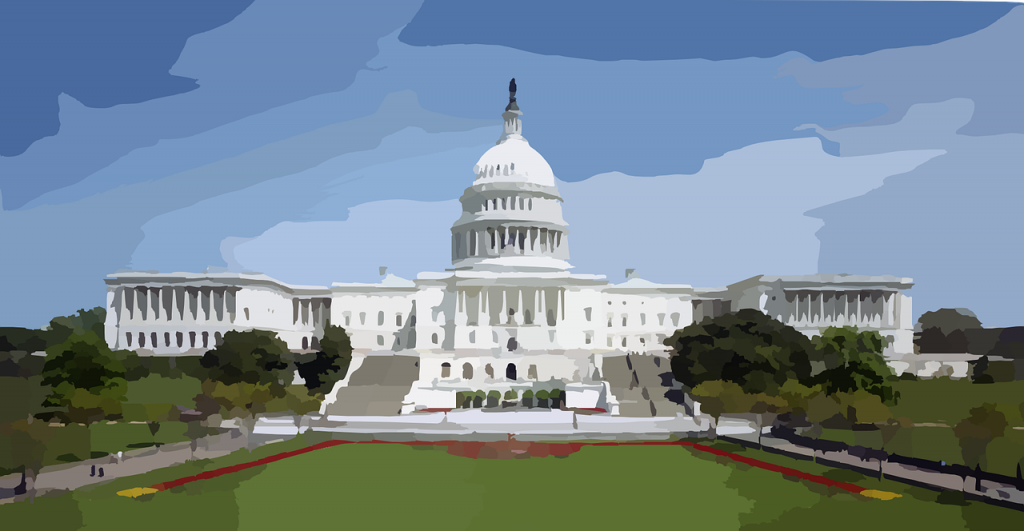
Another Coronavirus Bill Is Coming – Could Impact Retirement Savings
by Dani Kehoe, Counsel to NAIFA
Even in times of stay-at-home orders and fear of sickness (personal, societal, and economic), work on Capitol Hill continues. Most of it is remote work, but it’s intense nevertheless. It looks like we have another “rescue bill” coming—possibly within two to three weeks. And the programs in the most recent rescue bill (the CARES Act) are beginning. Here’s a summary.
Round Four Coronavirus Response Bill: All legislative players—House, Senate, White House—in both parties say another coronavirus response bill is coming. The last hold-out, Sen. Mitch McConnell (R-KY), said late last week that “there will be a fourth bill.” Sen. McConnell, the influential leader of Senate Republicans, has never said “no” to a new rescue bill, but he had been saying we should give the CARES Act and the Families First Coronavirus Response Act (FFCRA) a chance to work. He is now more open to a quick new bill.
The focus of this next bill seems to be changing. Initially, Speaker of the House Rep. Nancy Pelosi (D-CA) said it would be focused on “recovery”—and there was quite a lot of bipartisan, bicameral interest in an infrastructure package. Now, however, due to eye-popping unemployment and jobs loss numbers in the last two weeks, the talk has shifted to a bill that builds on (expands and extends) the programs in the CARES Act/FFCRA.
Timing is also beginning to gel, just a bit. Insiders are privately speculating that a new bill could emerge in as little as two weeks. In public, Rep. Pelosi says she’s looking at the end of April to bring a bill to the House floor.
What will this new bill contain? That’s an open question at this point, but likely are:
- Extended and expanded small business assistance
- Extended unemployment benefits
- Extended/expanded paid sick leave rules
- More money for states and localities battling COVID-19
- More money for health care providers—institutional and personal, including the potential for hazard pay
- Incentives to ramp up and ease supply chain problems (most especially, personal protective equipment for health care workers, and medical supplies like ventilators)
We anticipate solidified information on the Round Four bill by later this week or perhaps early next week. In the meantime, below are issues-specific summaries on the state of implementation of CARES Act/FFCRA programs, along with prospects for new legislation in these areas.
Retirement Savings: The new Round Four bill may contain several pension provisions: there is an effort to resolve the labor union multiemployer pension plan problem (still as knotty and divisive a problem as it’s always been), along with consideration of defined benefit (DB) plan relief. That relief could include changes to the smoothing rules and a further deferral of the due dates for required contributions.
Small Business: Small business relief will be front-and-center in the new bill. The Paycheck Protection Program (PPP) got off to a bit of a rocky start this past Friday, but the Small Business Administration (SBA), Treasury, and financial institutions are working feverishly to overcome the start-up bumps. Insiders hope the process will be much smoother this upcoming week.
There is great hope that the PPP will provide substantial help to struggling small businesses. Lawmakers are currently considering expanding the program (adding at least another $350 billion (and maybe enough to fund the program at $1 trillion) to the $350 billion already allocated to it), and extending it (paying for payroll expenses for an additional two to four months, depending on the arc of the crisis over the next few weeks). Again, depending on how fast the start-up glitches get resolved, this could be an area of bipartisan support.
The CARES Act also included $10,000 grants in connection with economic injury disaster loans (EIDLs), an employee retention tax credit, and deferral of payroll tax payments. Guidance on how to take advantage of these programs came out last week, and these programs are off to a somewhat smoother start than the PPP.
Paid Sick Leave: Guidance on the FFCRA paid sick leave rules came out last week, too—those rules took effect on April 1. Now, lawmakers are discussing extension and expansion of those benefits. This is a more contentious area—there are Democrats who are pushing for enacting a permanent rule that would require employers to allow their workers to accrue at least seven days/year of paid sick leave (regardless of the coronavirus). However, the GOP continues to push back hard against this idea. Republicans are still insisting that this emergency legislation be confined to coronavirus crisis measures, and many Democrats agree with them, even if they also support a federal paid sick leave policy. Therefore, odds are against enactment of a permanent sick leave rule, although it’s not impossible. But narrowing the exception from the rule for health care workers, and potentially imposing it on large employers, are possibilities.
Unemployment Benefits: Vastly expanded unemployment benefits (and some 10 million new applicants in the last two weeks) mean states are scrambling to meet the demand. And Congress is talking about adding to that by expanding the time for which coronavirus-related unemployment benefits will be available (they’re talking about providing the $600/week federal benefit for six months, up from the four months under current law).
There are some programmatic issues in play, too. The usual rule for qualifying for unemployment (in most if not all states) is that an applicant for those benefits must have been laid off, fired without cause, or otherwise separated by the employer. Under the CARES Act, qualification arises from a number of coronavirus-related reasons, including the need to stay home to take care of children whose schools/daycare have closed and exposure to the virus. This has led many to believe that a worker could affirmatively quit his/her job, and still qualify for the benefits. This is a significant issue. There are people on both sides of it, and it will be a battleground issue during crafting of the next bill.
Tax: The possibility exists that some narrow tax issues will find their way into Round Four coronavirus response legislation. Among the possibilities is an insurance company-desired fix to the tax definition of life insurance to allow for an interest rate (used to calculate the allowable ratio of cash value to death benefit) that reflects market conditions. There is considerable interest in this on the Hill, among the tax writers who are familiar with/understand this highly technical issue. And, there’s widespread understanding that life insurance is critical in these tough times, both for its financial protection against the potential death of breadwinners and for its utility (cash values—loans and/or withdrawals) in providing a financial cushion during these tough financial times. However, it’s also a narrow issue that, while related to ways to get through this crisis, is not a direct coronavirus-related proposal. So it’s 50-50 whether it will make it into the Round Four bill.
Another life insurance issue that is being discussed on the Hill is the tax treatment of insurance company-held bonds. That issue is also highly technical and narrow. Its fate is uncertain.
Much of the small business and individual relief in FFCRA and CARES is based in tax—tax credits are the method by which the U.S. government is paying for payroll support and paid sick leave. Expect that use of the tax code to continue in Round Four legislation.
Finally, due dates for taxes (and contributions to IRAs and retirement savings plans) have been extended. Final federal tax returns now need not be filed until July 15. This could be an issue in some states that require a federal tax return in order to calculate state taxes where those states have not also extended their tax filing requirements. This is a “sleeper issue” on Capitol Hill, but one that could emerge as the legislation is crafted.
Health: Health issues are at the heart of new law and emerging legislation. There will be more money for health care systems and providers, supplies, and equipment. Hazard pay is also in the mix. There is still the possibility of including a surprise billing measure in the Round Four bill, although at the moment, it appears unlikely. Insurers are being asked to waive copays and deductibles for coronavirus testing and to pay for COVID-19 treatment in full. Some have agreed at least to no-cost-to-individuals testing. Watch for this issue to pop up in coming weeks.



